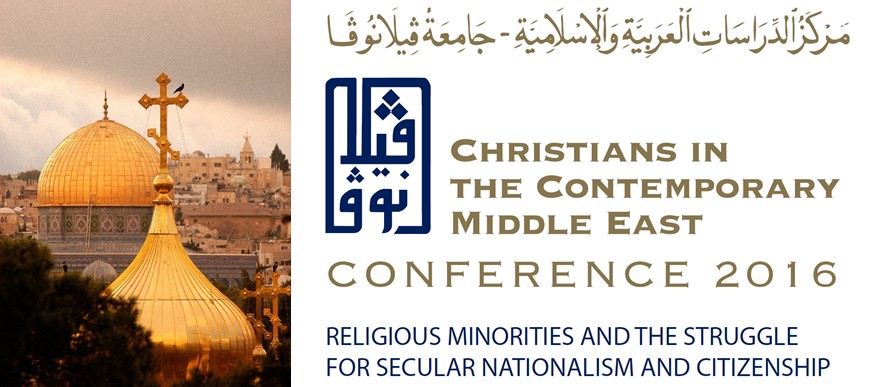Introduction
For more than 2,000 years, Christian communities and other religious minorities have thrived as an important piece of a vibrant Middle East mosaic. These communities share the same rich history and a large part of the cultural heritage of the Muslim majority population.
As the 28th Session of the United Nations Human Rights Council in Geneva noted in its March 13, 2015, Joint Statement: “The situation of Christians in the Middle East, a land on which they are living for centuries and have the right to remain, raises deep concerns. There are more and more reasons to fear seriously for the future of the Christian communities that have more than two thousand years of existence in this region, where Christianity has its full place, and began its long history.”
These communities have faced economic and political insecurity and sectarian violence—giving rise to religious radicalism and militant groups that threaten the very existence of religious minorities, especially those steeped in Christian heritage and tradition. Although religious extremism threatens all Middle Eastern religious and ethnic minorities, Christians, in particular, represent a significant group whose status is a barometer of whether the coexistence of religious and ethnic diversity will be possible in the Middle East.
On December 5-6, 2016, international scholars, government officials, and NGO representatives convened at Villanova University to discuss a thoughtful framing of the Christian cultural and intellectual life in the Islamic Middle as a shared history of pluralistic and cosmopolitan spaces, and to engage in thoughtful strategies and solutions for the continued existence of Christian and other religious minorities in the region.
As an Augustinian Catholic institution of higher education, Villanova University is committed to raising awareness and seeking solutions that will protect and preserve the human and civil rights of all religious minorities in the Middle East.
Letters of Greeting, Keynote Address and Conference Resources

